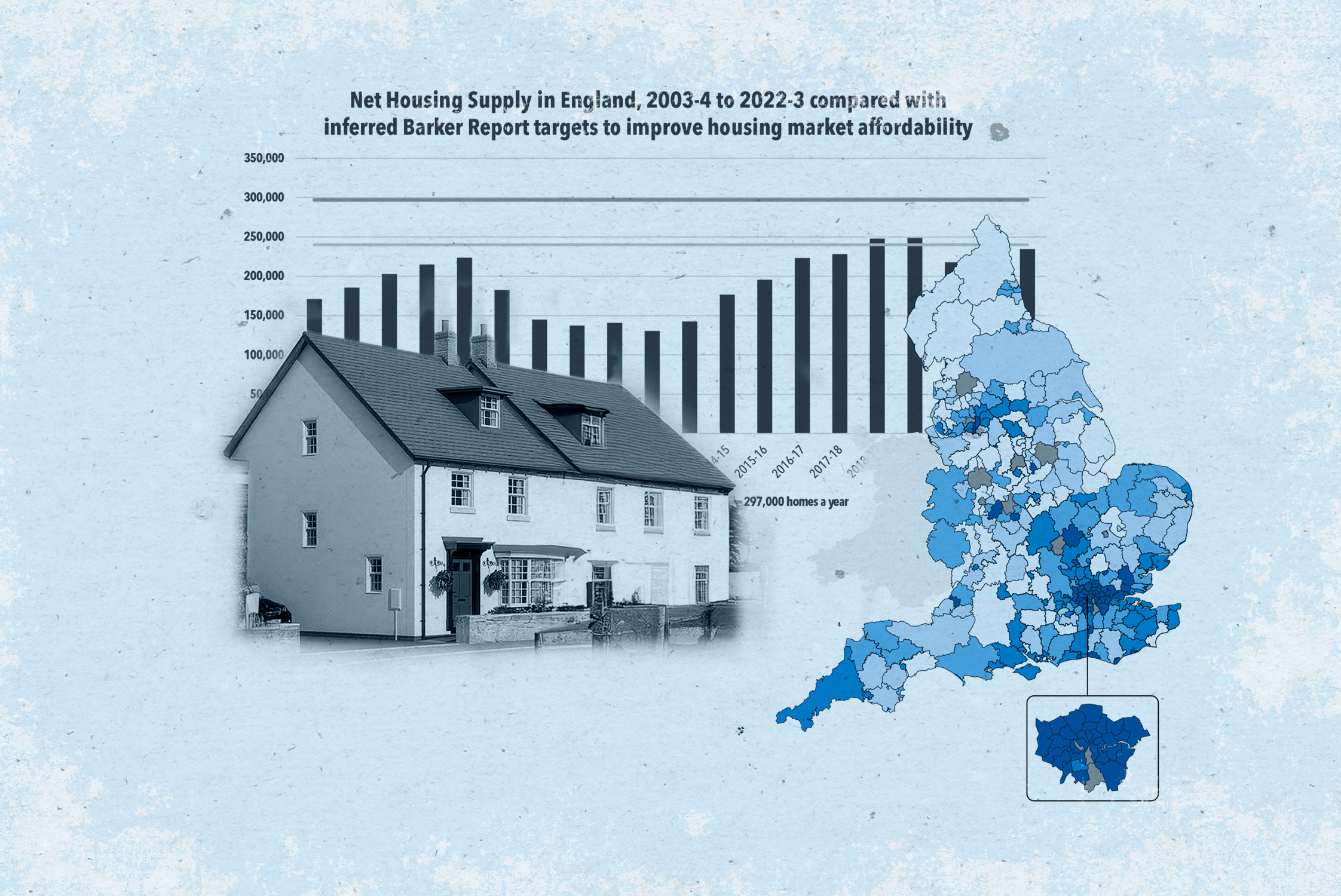You are viewing 1 of your 1 free articles

John Verge is chief executive of Golden Lane Housing, and chair of the Learning Disability and Autism Housing Network
What the Public Accounts Committee’s new report means for the delivery of supported housing
Last week the Public Accounts Committee published a report that, among other things, called on government to demonstrate how it is maximising efforts to get supply of supported housing to meet demand. John Verge sets out how he thinks the report will affect delivery
These days, reports on supported housing are similar to London buses. You wait ages for one, and then three important reports come along in relatively close succession. The latest inquiry report from the House of Commons Public Accounts Committee follows on the heels of the Levelling Up, Housing and Communities (LUHC) Committee Inquiry into Exempt Accommodation published a year ago and the National Audit Office’s (NAO) own investigation issued in the spring.
Parliamentary committee and watchdog interest in a generally neglected sector for proactive government policy development follows serious concerns from campaigners, politicians and the media about the quality and costs of some parts of the supported housing sector, particularly in short-term, non-commissioned provision.
Over the summer, Bob Blackman MP’s fortuitous ballot-drawn private members’ bill, which aims to address many of the LUHC Committee’s recommendations, received Royal Assent. The sector now awaits formal consultation from the Department for Levelling Up, Housing and Communities (DLUHC) on how the proposed new national standards and local authority licensing schemes for supported housing will operate.
This latest Public Accounts Committee inquiry report looks to address supply and data issues raised by the NAO investigation and support the implementation of the new Supported Housing (Regulatory Oversight) Act with appropriate funding.
The Learning Disability and Autism Housing Network – a coalition of 25 housing associations that have a shared vision to provide, develop and promote quality homes and housing services – published our own report on supported housing for people with learning disabilities and autistic people in July this year.
“Parliamentary committee and watchdog interest in a generally neglected sector for proactive government policy development follows serious concerns from campaigners, politicians and the media about the quality and costs of some parts of the supported housing sector”
The research commissioned from Housing LIN provides up-to-date information and data on the size, scope and future need of the provision, and sets out clear recommendations to government, local authorities and housing providers to address the lack of supply and ensure quality. We welcome the key recommendations from the Public Accounts Committee, which aim to address some of the supply, oversight, data and funding issues.
The report critically points to maximising the provision of supported housing to meet increasing demand through the Affordable Homes Programme, which is currently disappointingly projected to deliver only half the intended homes. Our research shows that without higher grant levels or amendments to the Rent Standard, this is unlikely to dramatically change for our sector.
The Public Accounts Committee points to government being hampered in improving the “challenge-riddled sector” by the lack of data it holds. Better data is vital for improved decision-making on the future direction of supported housing. DLUHC’s current research being carried out by Sheffield Hallam University will build on the last 2016 supported accommodation review and next year will report on the size, cost and demand of the entire supported housing sector.
The new inquiry report makes the clear case for adequate funding for local authorities to deliver the aims of the new Supported Housing (Regulatory Oversight) Act. Importantly, it acknowledges that their real concerns are focused on the expanding sub-sector of short-term accommodation and future oversight must not discourage good-quality providers with too-high licensing fees.
“We see every day the positive difference community-based housing with appropriate support makes”
But as with previous reports, it notably fails to recognise that exempt accommodation also includes a significant amount of lifetime long-term, commissioned supported housing. Our research shows that over 83% of supported housing for people with learning disabilities and autistic people is categorised as exempt accommodation. It is therefore vital that future local authority funding and oversight reflects the scale, type and funding requirements of the entire supported housing sector.
Finally, housing associations have a clear role to play in responding to these recommendations and supporting the delivery of supported housing. We need to support the evidence in quantifying the savings that providing more supported homes can make to local and central government spend on adult social care, and evidence the positive impact that good-quality supported housing can have on people’s lives.
Last year, Golden Lane Housing worked with commissioners across the UK to support more than 275 people into new homes, many from high-cost, inappropriate institutional settings. We see every day the positive difference community-based housing with appropriate support makes.
Ultimately, without adequate targeted capital and revenue funding from government to support better strategic planning and address the supply issues, significant changes and improvements will continue to be challenging for local authorities and providers.
John Verge, chief executive, Golden Lane Housing; and chair, Learning Disability and Autism Housing Network
Sign up for our care and support newsletter
Already have an account? Click here to manage your newsletters












